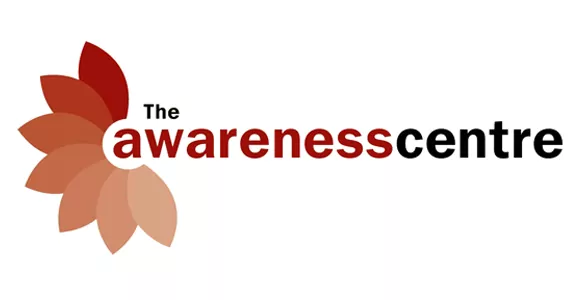What is Online Counselling?
Online counselling is the provision of mental health support and counselling via the internet. It can take many forms such as video counselling, email counselling, telephone therapy, and even chatbots.
The main benefit of online counselling at the moment is that counsellors can continue to provide counselling throughout the coronavirus pandemic. Although we are currently in isolation, we can still support our clients. Further benefits of online counselling include convenience and increased access for both client and therapist, lower overheads (if you usually pay rent for a counselling room), and more flexibility.
It used to be the case that online therapy was seen as secondary to face-to-face counselling, however as the years have passed, online therapy has gained some empirical support and has become more mainstream.
Online versus face-to-face counselling has probably been one of the most hotly debated topics among mental health professionals in the last 15-20 years. However, many of us now find ourselves having to decide between online counselling, or not seeing our clients for a period of time.
Research by Thompson (2016) found that online therapy clients experienced similar results when compared to the control group, that the working alliance was unaffected by the communication medium, and that clients were predominantly satisfied with online therapy. Studies have also found that more and more clients are willing to enter into internet-based therapy and in fact, may actually be more compliant with that modality than with face-to-face sessions (Day and Schneider, 2002).
What should you consider when offering online counselling
When starting to work with clients online, there are some things that we should all consider. Of course, existing ethical guidelines and personal morals still stand, but there are some additional elements that we need to be aware of.
1. Insurance
Many UK insurance companies that provide professional liability cover will also cover you for online or digital working in the UK. However, you should contact your insurer directly if you are in any doubt.
Something to consider when offering online therapy in the longer-term is that many insurance companies won’t cover you to work with clients in other countries. Often it depends on the country in which your client resides, but it is best to check with your insurer.
2. Security
When we offer face-to-face counselling, we are all aware of the importance of confidentiality, Data Protection laws, and GDPR (General Data Protection Regulation) principles. However, there is another level of security that we need to consider when moving to online therapy.
You may need to make edits or addendums to your existing contract and provide your existing clients with a contract update. Edits might include which online platform you will be using and why, the possibility of security breaches, storage of online data, and so on.
It is important to research which platform you will use for online therapy, as the security of various platforms can vary enormously. It is important to use a platform that is encrypted. Encryption refers to the “conversion of electronic data into another form, called ciphertext, which cannot be easily understood by anyone except authorised parties” (What Is Encryption, 2016).
3. Which Platform?
If you, or your client, don’t have the equipment for video appointments, then telephone therapy is a suitable option. The limitations of telephone counselling include the lack of facial expressions and non-verbal communication. It is well-known that a large portion of communication is non-verbal, and so you might be miss something when conducting therapy over the phone. However, telephone therapy carries the same benefits as video counselling in that it is convenient for the therapist and the client, is confidential and can work well for clients who might be less technologically advanced.
There are quite a few video platforms out there, used by many therapists and counsellors. Skype is a well-known option, however, has had some difficulty meeting various data protection regulations such as America’s HIPPA regulation (Health Insurance Portability and Accountability Act, 1996), which govern the transmission of sensitive health information over the internet.
Zoom offers a video communications system for free unlimited 1-to-1 meetings. It can be used on a wide range of systems such as PCs and laptops, as well as tablets and phones. It is easy for clients to use as the counsellor sets up the meeting and sends the client a URL link that admits the clients to the session. Zoom uses end-to-end encryption, offering enhanced security, and has added options of sending meeting passwords to clients. Zoom also offers the ability to create a waiting room for your client, allowing you to admit your client to the meeting once you are ready.
VSee is a HIPPA-compliant video conferencing platform used by many medical professionals. It uses lower bandwidth, meaning that those with a slower internet connection can still get good quality video and audio. However, in order to use the software, both parties have to have it downloaded and set up accounts, whereas on Zoom you can invite participants who don’t already have accounts.
4. Location
Even though you no longer need to travel to a specific counselling room, you still need to consider your location when working online. Is the room private? Can you guarantee that there won’t be any interruptions?
It is important that the room that you are in is professional. Your background should be office-like or neutral, rather than cluttered with personal items that might distract the client.
It can be helpful to discuss with your client in advance that they should find somewhere for themselves that is quiet and confidential, with minimal disruptions.
5. Crisis Situations
When you are working with a client in the room, in face-to-face counselling, and the client is in crisis, it can feel slightly easier to deal with. The client is physically in front of you and you can work with the client to get them to a safer place before they leave the room.
However, when you are working online, and the client isn’t physically in the same room as you, when a crisis arises it can feel more difficult to handle, and the client could sign off at any moment. The ability to hold and contain the client has slightly been diminished in these circumstances. It is important to ensure that you have an emergency contact for the client, and that you are aware of local services that the client can access, or that you can access on behalf of the client. Be sure to go through these things in the early sessions; who should you contact if the client is in crisis, who can they contact if they are in crisis, who is their GP and do you have permission to contact them?
6. Technical Difficulties
When working online, it is almost inevitable that technical difficulties will arise. Perhaps your connection drops, or perhaps the client isn’t able to sign in for some reason. You should have discussed, or put in your contract, what will happen in these circumstances.
Do you ask the client to call or email you if they have technical difficulties? If your connection drops midway through the session, will you call them or they call you? If it is your video software that is failing, can you continue the session over the telephone? How long do you keep trying to re-connect before you declare it a missed session and reschedule?
Depending on the service that you use, you might have technical support, but be sure that the technical support adheres to confidentiality guidelines.
7. Payment
If you usually charge for your services, how will you do this when the therapy is online? Many therapists use PayPal or bank transfers. Some online banking systems allow you to send invoices to clients. Will you ask for payment prior to the session or after its completion?
This is something that can be added to or edited in your existing contract.
8. Supervision
If you are working with clients online, it is important that at least some of your supervision mirrors this. At least some of your supervision sessions should take place using the same medium that you are using to see clients. So, if you are using the telephone to deliver counselling sessions, then you should do so in supervision, and if you are using video software to deliver counselling sessions, then some of your supervision should be via video.
How can we prepare clients for working online?
It is always helpful to discuss things with clients before your first appointment. Some therapists offer a free telephone consultation prior to booking the first appointment. While therapists have moved to remote working, these conversations can be invaluable.
Use the time to ensure your client has the technology they need for video counselling (any device with a camera will do). Make sure the client will have a safe and private space at the time of the session. Create a backup plan in case the technology fails (discussed above), and go through some of the contracting with them (payment, cyber-security, appointment times, cancellation policies, etc).
During the first few sessions, it is important to check with your clients how they are experiencing the transition to online counselling and to bring up things that might be impacting them. For example, they might be aware of others in their house who might overhear them, they might be experiencing feelings of psychological distance.
Clients might feel disinhibited by the fact that they are in their own house and that the counselling is taking place remotely. Therefore, they may go in too deep too quickly. It is very important in online therapy to emphasise boundaries, containment, and holding, and to warn client’s against disclosing too much too quickly and overwhelming themselves.
So, what are your thoughts on online counselling? Have you done it before? Are you switching to online counselling because of the Coronavirus? Are you still seeing clients face-to-face, or are you putting your practice on hold until you can see clients face-to-face again?
If you would like to join our community of counsellors who are now working online, please contact us on [email protected] or call 020 8673 4545 today.







